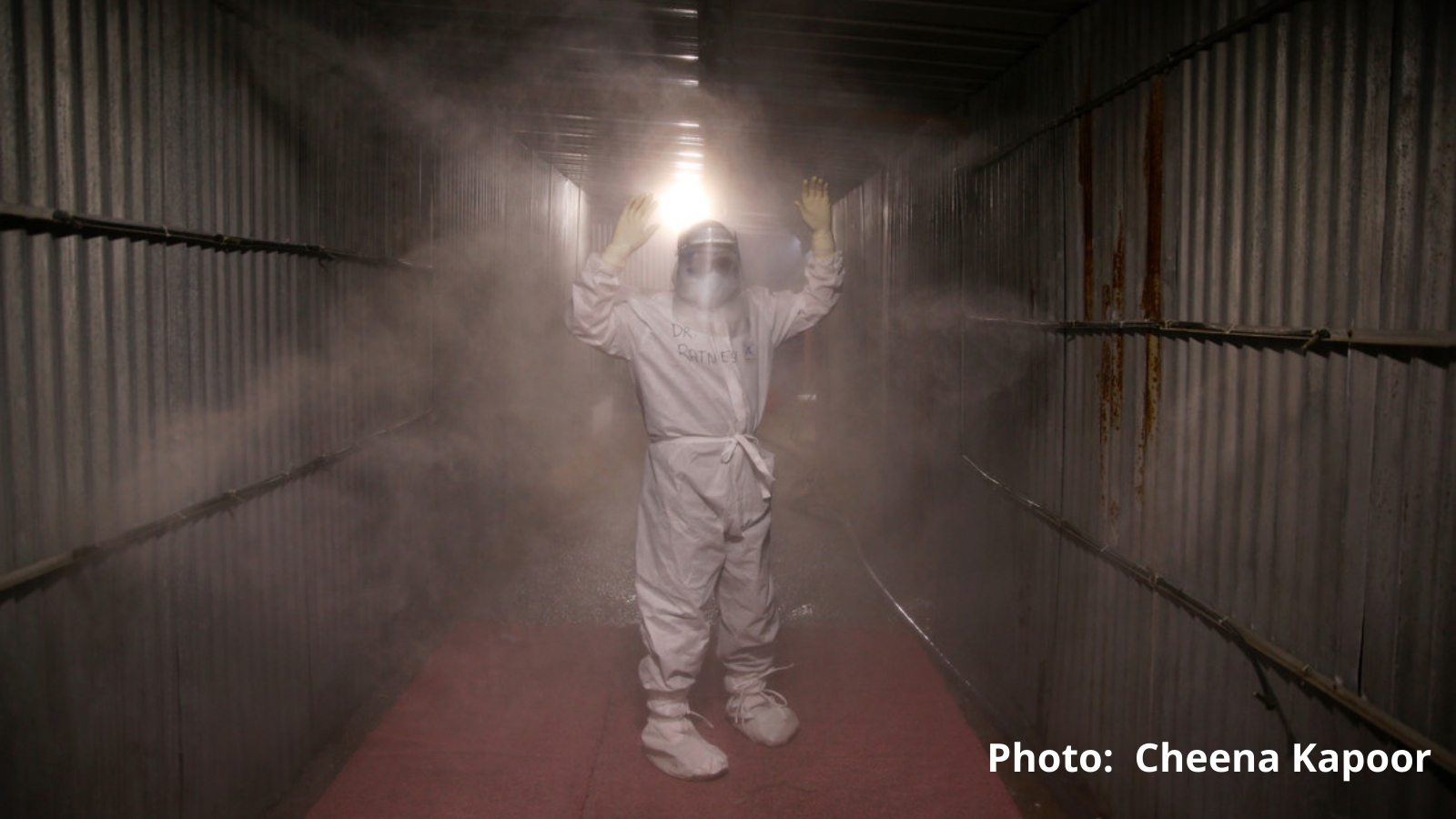By Jamie Livingstone
India isn’t just facing a second wave of coronavirus: it’s facing a tsunami.
And we should all be very, very worried.
The pictures coming out of the country – home to 1.3 billion people – are beyond chilling. Reports say that the fires in Delhi’s crematoriums have not stopped burning as coronavirus infection rates spiral out of control with makeshift funeral pyres being built in parks. My Oxfam colleagues describe desperate scenes of people dying in the streets without oxygen and not even able to get into hospitals.
With over 300,000 new cases being detected every day, India’s health system simply isn’t able to cope: hospitals are being overrun and there aren’t enough ventilators to go around.
In response, the Disasters Emergency Committee (DEC) has extended its coronavirus fundraising appeal to include India. DEC member charities, together with our local teams and partners, are providing medical supplies, treatment facilities and logistics support to overwhelmed health services.
Oxfam India has already deployed teams to five of the worst-hit states and are preparing to distribute PPE to frontline health workers and medical equipment, like oxygen tanks, to government hospitals and health centres where supplies are desperately low. To help tackle rising poverty and hunger they are reaching out with food and cash grants to the most marginalised communities.
My colleague, Pankaj Anand, Oxfam India’s Humanitarian and Programmes Director, told us he didn’t know of a single family where someone hadn’t been infected. India’s health infrastructure is simply bursting at the seams.
We’re working tirelessly to save as many lives as we can, but we can’t do it alone. Governments around the world must unite to do everything in their power to prevent more covid deaths. Right now, their efforts are falling woefully short.
In the midst of India’s devastating coronavirus surge, this week leaked reports detailed the UK Government’s plan to slash its lifesaving aid budget, reducing funding to water, hygiene and sanitation projects by 80%. The cuts are as eye watering as they are ludicrous: surely the world needs more access to clean water and soap during a global pandemic, not less?
But it’s not just aid cuts which are plunging poor communities further into crisis. World leaders have been repeatedly warned of a growing vaccine apartheid; with rich nations vaccinating their citizens at a rate of one person per second while some poorer countries have yet to administer a single dose.
Millions of people around the world rely on India for their medicines, yet the cruel injustice is that country known as the ‘the pharmacy of the world’, is itself gasping for breath.
India is one of over 100 developing countries currently trying to force pharmaceutical companies to urgently share their vaccines recipes and intellectual property to allow mass production of vaccines. It’s a move being blocked by a handful of rich countries, including the UK.
In the meantime, a monopoly of top pharma bosses continue to artificially ration global vaccine supply, pocketing billions of dollars and leaving millions of the world’s poorest people to take their chances with surviving Covid.
As world leaders prepare to gather for the G7 in England in June, it’s clear that working together to override the broken system of patents, monopolies and secrecy must be at the top of their priority list if they want to avoid similar catastrophes to the one currently unfolding in India.
The images and stories coming out of India will be particularly distressing for the more than 30,000 Indians living in Scotland. For others, they may seem a world away as our vaccination programme continues to roll out at pace and shops, restaurants and pubs begin to cautiously re-open.
But this isn’t just a crisis for India, or poor countries in other corners of the world: it could become a crisis for us all. As leading epidemiologists have warned; if coronavirus is left to run rampant unchecked then the rise of new variants could render the UK’s existing vaccines obsolete.
The deadly combination of vaccine nationalism and powerful business interests is threatening to undermine the global fight against covid and the price could be many, many more needless deaths worldwide and repeated returns to painful lockdowns in rich nations too.
As the DEC member charities know, we urgently need a people’s vaccine. No one should be blocked from getting a life-saving vaccine because of the country they live in or the amount of money in their pocket.
Until world leaders respond to that call, with your support, the DEC will continue to save as many lives as possible. Please donate today, to help the most vulnerable people in India as they face this devastating coronavirus surge. Your support could save lives.
Donate via www.dec.org.uk, 0370 60 60 900 or Text SUPPORT to 70150 to donate £10.
